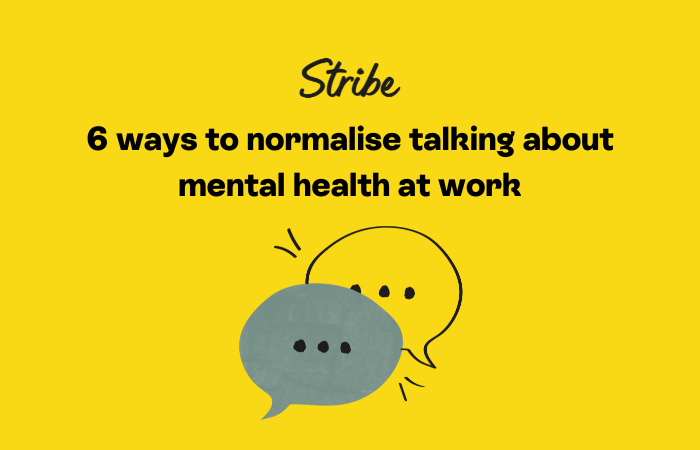
1. Start with a mental health statement
A mental health statement is a written declaration shaped by your organisation that demonstrates your commitment to all mental health matters. It’s a first step towards breaking down the walls of stigma and creating a workplace culture that genuinely cares about the emotional health of its people.
The statement should embody your commitment to creating a safe and supportive environment where employees can share their mental health experiences without fear or judgment. It helps employees feel heard, valued, and understood, paving the way for more compassionate conversations about mental wellbeing.
2. Ongoing training and education
Awareness is the key to empowering both leaders and employees with the knowledge and tools to recognise, empathise with, and respond to mental health challenges.
Regular mental health awareness learning sessions will build a culture of empathy, reduce stigma, and equip your colleagues to be proactive allies.
3. Promote self-care initiatives
Promoting self-care and wellbeing initiatives will help encourage employees to prioritise their mental and emotional health through proactive and mindful practices.
By offering resources, workshops, and activities that centre around self-care, you can empower your workforce to better manage stress, build resilience, and maintain a healthier work-life balance. These initiatives help employees understand that their wellbeing matters and that taking time for self-care is not only beneficial but also fully supported.
4. Use correct language
Using correct language matters. By choosing words and phrases that are non-judgmental and inclusive, you will show your commitment to communicating with respect, understanding and accuracy.
Correct language and terminology help create a safe and inclusive environment where individuals feel comfortable discussing their mental wellbeing. It also reinforces the message that mental health is an integral part of our overall health, deserving of the same consideration and compassion as physical health.
5. Open communication and surveys
Conducting surveys and keeping communication channels open are important steps towards creating an environment where employees feel heard, valued, and supported in their mental health journeys.
These initiatives involve establishing accessible (and oftentimes anonymous) avenues for employees to share their concerns, ideas, and feedback related to mental wellbeing.
By actively seeking input through surveys, you will show your commitment to understanding employee needs and concerns. This not only helps identify potential issues but also allows for transparency and targeted improvements in mental health programs and policies.
6. Normalise seeking help
Normalising seeking help means creating an atmosphere where asking for support with mental health is not only accepted but encouraged.
It’s about reassuring employees that their wellbeing matters, and that seeking help when needed is a sign of strength, not weakness. When we normalise seeking help, we break down the barriers of stigma and silence, making it more likely for individuals to reach out for assistance when they face mental health challenges.
Here’s a list of organisations and charities in the UK that can provide helpful resources, and expert information:
- Mind UK
- Samaritans
- Anxiety UK
- Mental Health UK
- Mental Health Foundation
- Rethink Mental Illness
- NHS Mental Health Services
When people are heard, teams are happy.
Stribe makes it easier for business leaders and HR teams to support the engagement and wellbeing of their employees.
To learn more about Stribe and how our employee engagement platform can help your team, visit stribehq.com.